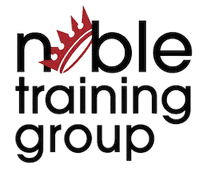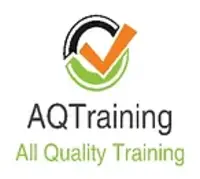
Engineering courses in Hobart
Course providers in Hobart
The following providers offer Engineering courses in Hobart, Tasmania.



























Career Pathfinder
Skills shortages + AI Exposure
Discover in-demand careers and understand how each role may be impacted by AI and automation.
- See in-demand occupations across Australia
- Check AI Exposure ratings
- Compare training duration and average income
Choose a study area
Aerospace Engineering
Aerospace Engineering is a dynamic field that opens doors to exciting career opportunities in Australia. With 7 diverse courses listed on Courses.com....
Biomedical Engineering
Embarking on a career in Biomedical Engineering can be an incredibly rewarding choice, especially with the diverse range of courses available in Austr...
Chemical Engineering
Embarking on a career in Chemical Engineering can open a world of opportunities for individuals interested in the intricate processes that drive the p...
Civil Engineering and Construction
With a growing demand for skilled professionals in the construction and civil engineering sector, pursuing a career in this field can lead to rewardin...
- Planning Engineer
- Draftsperson
- Civil Engineer
- Apprentice Engineer
- Engineering Tradesperson
- Advanced Engineering Tradesperson
- CAD Operator
- Hydraulic Designer
- Research Engineer
- Geotechnical Engineer
- Development Engineer
- Naval Architect
- Asset Engineer
- Engineering Consultant
- Forensic Engineer
- Structural Engineer
- Civil Designer
- Site Engineer
- Architectural Engineer
- Geospatial Engineer
- Building Services Engineer
- Hydraulic Engineer
- Coastal Engineer
- Construction Engineer
- Water Resource Engineer
- Transport Engineer
- Railway Engineer
- Civil Design Engineer
- Water Engineer
- CAD Designer
- Engineering Technologist
- Junior Engineer
- Infrastructure Engineer
- Engineering Technician
- Civil Engineering Technician
- Structural Project Manager
- Facade Engineer
- Bridge Engineer
- Tunnel Engineer
- Fire Engineer
- Fire Protection Engineer
- Bulldozer Operator
- Lift Mechanic
- Stonemason
- Structural Designer
- Structural Modeller
- Civil Modeller
- Structural Drafter
- Civil Construction Worker
- View all
Electrical Engineering
Are you looking to kickstart your career in Electrical Engineering? At Courses.com.au, we offer a comprehensive list of Electrical Engineering courses...
- Industrial Electrician
- Automation Technician
- Control Technician
- Telecommunications Technician
- Telecommunications Engineer
- Circuit Board Designer
- Automation Engineer
- Electrical Supervisor
- Project Engineer
- Robotics Technician
- Electrical Engineer
- Research Engineer
- Field Engineer
- Asset Engineer
- Communications Engineer
- Engineering Consultant
- Workshop Supervisor
- Electronic Engineer
- IoT Engineer
- Instrumentation Engineer
- Computer Hardware Engineer
- Embedded Systems Engineer
- Electrical Design Engineer
- Power Engineer
- Electrical Power Engineer
- Control Systems Engineer
- Engineering Technologist
- Electrical Designer
- Lighting Engineer
- Lighting Consultant
- Engineering Technician
- Grid Connection Engineer
- Firmware Engineer
- Grid Engineer
- SCADA Engineer
- Power Plant Operator
- Electrical Engineering Draftsperson
- Lift Mechanic
- Electrical and Instrumentation Technician
- SCADA
- SCADA Technician
- View all
Electrical Equipment in Hazardous Areas
Electrical equipment in hazardous areas presents unique challenges and opportunities for aspiring professionals in Australia. To excel in this critica...
Manufacturing Engineering
Manufacturing Engineering is a vital field that blends various engineering disciplines to manufacture products efficiently and effectively. With a gro...
- Apprentice Engineer
- Engineering Tradesperson
- Industrial Electrician
- Machinist
- Hydraulic Mechanic
- Hydraulic Fitter
- Plant Mechanic
- Mechanical Fitter
- Advanced Engineering Tradesperson
- Automation Engineer
- Plant Engineer
- Mechanical Engineer
- Manufacturing Engineer
- Research Engineer
- Engineering Patternmaker
- Maintenance Engineer
- CNC Programmer
- Apprentice Industrial Designer
- Industrial Engineer
- Materials Engineer
- Maintenance Fitter
- Field Engineer
- Asset Engineer
- Production Engineer
- Engineering Consultant
- Workshop Supervisor
- Process Engineer
- Design Engineer
- Industrial Designer
- Automotive Engineer
- Quality Assurance Engineer
- Instrumentation Engineer
- Computer Hardware Engineer
- Product Design Engineer
- Composites Engineer
- Product Development Engineer
- Research and Development Engineer
- Process Control Engineer
- Plastics Engineer
- Corrosion Engineer
- Mechanical Designer
- Mechanical Design Engineer
- Control Systems Engineer
- Junior Engineer
- Engineering Technician
- Manufacturing Technician
- Mechanical Engineering Technician
- Fluid Power Engineer
- Electro Plater
- Mechanical Engineering Draftsperson
- Metal Machinist
- Composite Technician
- View all
Mechatronics
Mechatronics is an exciting and continuously evolving field that amalgamates mechanical, electrical, computer engineering, and control systems. With t...
Mining
If you're considering a career in the mining sector, Courses.com.au is your go-to resource for acquiring the essential skills and qualifications. Our ...
- Mechanical Fitter
- Apprentice Engineer
- Engineering Tradesperson
- Instrumentation Technician
- Industrial Electrician
- Plant Operator
- Machinist
- Hydraulic Fitter
- Hydraulic Mechanic
- Plant Mechanic
- Mechanical Fitter
- Advanced Engineering Tradesperson
- Driller
- Drilling Supervisor
- Mining Machine Operator
- Mining Supervisor
- Driller Offsider
- Geological Technician
- Production Operator
- Research Engineer
- Casting and Moulding Tradesperson
- Dump Truck Operator
- Miner
- Shotfirer
- Jumbo Operator
- Mining Engineer
- Metallurgist
- Mining Manager
- Mining Surveyor
- Fixed Plant Operator
- Floorhand
- Equipment Operator
- Quarry Manager
- Mine Planner
- View all
Oil and Gas
Are you interested in starting a career in the Oil and Gas sector in Australia? Courses.com.au offers a comprehensive range of Oil and Gas courses to ...
- Mechanical Fitter
- Electrical and Instrumentation Technician
- Apprentice Engineer
- Engineering Tradesperson
- Instrumentation Technician
- Industrial Electrician
- Plant Operator
- Hydraulic Fitter
- Machinist
- Hydraulic Mechanic
- Plant Mechanic
- Mechanical Fitter
- Advanced Engineering Tradesperson
- Derrickman
- Gas Industry Operator
- Research Engineer
- Petrochemical Engineer
- Drilling Engineer
- Petroleum Engineer
- Reservoir Engineer
- Oil and Gas Engineer
- Floorhand
- View all
Renewable Energy
Are you interested in pursuing a career in the rapidly growing field of renewable energy? At Courses.com.au, we have a wide array of Renewable Energy ...
- Renewable Energy Engineer
- Photovoltaic Engineer
- Wind Turbine Engineer
- Apprentice Engineer
- Engineering Tradesperson
- Renewable Energy Tradesperson
- Research Engineer
- Solar Installer
- Environmental Engineer
- Energy Analyst
- Sustainability Engineer
- Hydrogen Engineer
- Renewable Energy Consultant
- Hydroelectric Engineer
- Solar Engineer
- View all
Further reading


Most popular engineering courses
12th June 2022
Most popular building and construction courses
20th April 2022More about Engineering courses
Embark on an exciting educational journey with a variety of Engineering Courses in Hobart. Hobart, the capital city of Tasmania, boasts a vibrant community and several esteemed training providers committed to helping you achieve your engineering aspirations. Whether you are looking to step into the industry for the first time or upgrade your skills, you will find a suitable course tailored to your needs. With a choice of 20 engineering courses, Hobart offers a comprehensive range of modules that will set you on the path to success.
For beginners looking to kickstart their careers, many introductory courses are available. Consider the Certificate II in Engineering Pathways or Conduct Civil Construction Excavator Operations RIIMPO320F for hands-on learning experiences. For those interested in telecommunications, the Certificate III in Telecommunications Network Build and Operation provides the skills needed in this rapidly expanding field. With 11 beginner courses to choose from, there’s something for every aspiring engineer.
If you are an experienced learner seeking to expand your qualifications, Hobart's advanced courses can help you reach new heights. Institutions such as the TasTAFE and the University of Tasmania offer esteemed qualifications such as the Advanced Diploma of Civil Construction Design and Bachelor of Engineering (Honours) (Mechanical Engineering). These programmes are crafted to enhance your expertise and readiness for advanced roles in the engineering field.
Hobart is home to numerous training providers, including OROR, ComTech Training, and AVTA, dedicated to offering face-to-face education opportunities. Their presence in the local community allows students to benefit from rich, interactive learning environments that are essential in today’s hands-on engineering landscape. With various options, you’re sure to find a provider that suits your educational preferences.
For those diving deeper into specific engineering disciplines, Hobart’s courses cover various specialisations, including Civil Engineering and Construction, Renewable Energy, and Electrical Engineering. Each category offers tailored courses to equip you with the knowledge necessary to excel in your chosen field. Explore the breadth of opportunities available and take the first step towards achieving your engineering goals right here in Hobart.

